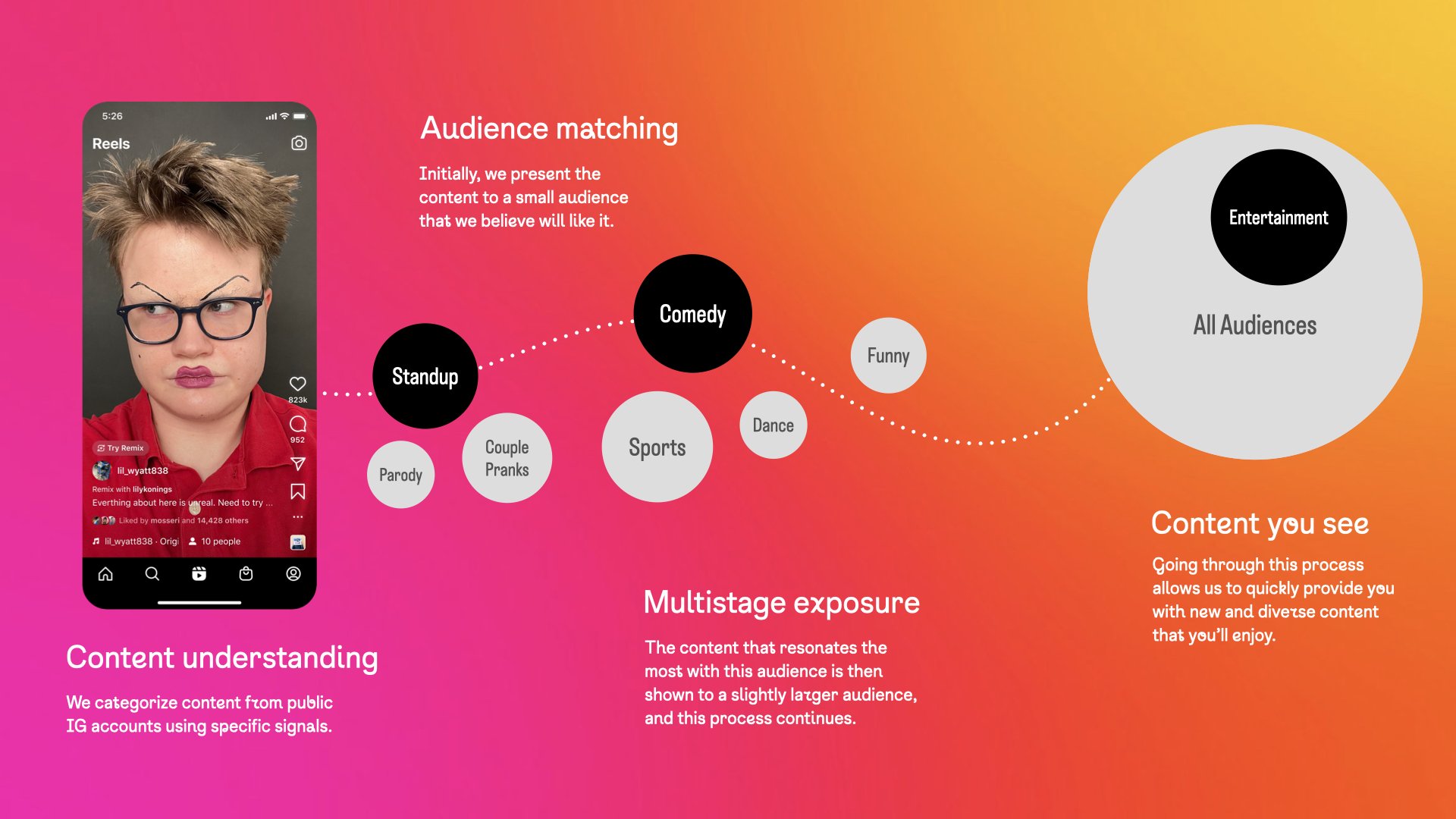Instagram Is Updating Its Ranking System to Support Smaller, Original Content Creators
What's Changing?
These changes, set to be implemented in the coming months, include:
An updated ranking that will give smaller creators more distribution.
Replacing reposted content with original content in recommendations.
Adding labels to reposted content that link to the original creator.
Removing content aggregators from recommendations.
What Else?
Instagram is also developing a method to rank recommendations to provide all creators the opportunity to reach larger audiences despite their follower count. Initially, the content will be shown to a smaller audience that Instagram predicts will enjoy it. Then, content that is resonating with be shown to a slighter larger audience, and so on.
What It Means for Creators
These updates aim to alleviate the frustrations expressed by smaller creators on Instagram regarding their reach and the unauthorized reposting of their content. They achieve this by rewarding them with attribution where appropriate and wider distribution. This, in turn, is expected to lead to stronger performance.
On the flip side, aggregators and reposters might experience a decline in performance as they won't appear in recommendations. To counter this, they'll need to add their own spin or commentary to the content they share from others, or, even better, focus on sharing more original content.
Implications for Brands & Influencer Marketing
There could also be implications for brands utilizing influencer marketing and user-generated content within their organic social strategy. Reposting content from creators may not only underperform but could also lead to a decline in overall account performance if they are excluded from recommendations.
As an alternative, brands that often repurpose creator content may want to:
Use the Collabs feature with creators for content that they want to share on their Instagram accounts.
Only have creators create content for them to post on their Instagram account as opposed to creators sharing it themselves so there’s the potential for it to be served in recommendations.
If they prefer not to change their current approach, that's perfectly acceptable. However, in such cases, brands should be mindful of the potential impact of these changes when they are implemented. This includes considering the performance measurement of content from creator posts that are also shared on their own profile.
The Timing Couldn’t Have Been Better
With all the talk about the potential TikTok ban, creators are increasingly serious about diversifying. The timing of this announcement couldn't be better. With Reels and YouTube Shorts emerging as key alternatives in a world without TikTok in the US, this should further convince creators to prioritize Reels due to its potential TikTok For You Page-like algorithm.
Tackling Attribution & Reposted Content
Instagram isn't alone in addressing the issues of attribution and the reposting of other people’s content. Other platforms like Pinterest and YouTube are also taking steps. For instance, Pinterest added an Account Claiming feature that allows creators to receive attribution when their Instagram content is shared on Pinterest.
Meanwhile, YouTube recently clarified its policy regarding "reused content," emphasizing that creators may face suspension or rejection from the YouTube Partner Program for posting such content without significant commentary or modifications.
Why These Efforts Are a Must
These efforts by platforms are crucial because they help maintain the satisfaction of creators who share content, ensuring they receive proper compensation when monetization is involved, and promoting the sharing of more original content across platforms.
When creators aren’t properly credited for their content or see it being stolen by others without any repercussions, it could lead them to question whether to continue sharing content. This becomes a significant issue because content is what keeps users engaged on social media platforms, and creators are the ones producing the best content.

